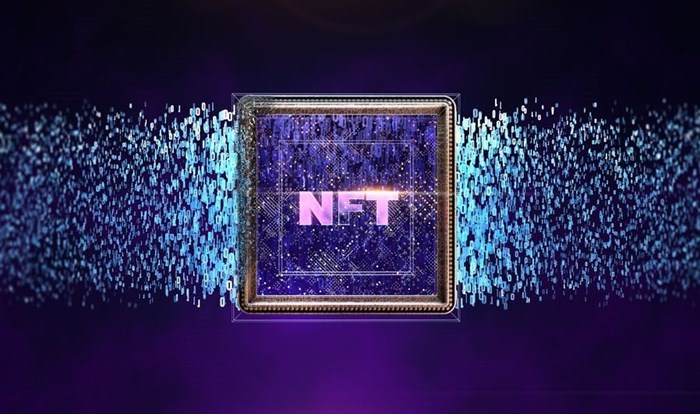
Image source: Aleksandr Ovcharenko –
123RF.comUnited Kingdom Intellectual Property Office (UKIPO)
The UKIPO has also published guidelines relating to the classification of NFTs, virtual goods and services provided in the metaverse.
Unlike their physical counterparts, virtual goods are classified in class 9 because the goods to which they relate consist of data such as digital images. However, the virtual goods must be clearly defined with adequate clarity and conciseness. Trade mark applicants should avoid vague terms such as “virtual goods.” The UKIPO provides examples of terms that would be accepted such as “downloadable virtual clothing, footwear, or headgear” or “downloadable virtual handbags.”
In relation to virtual services, if a service is capable of being delivered by virtual means, such as via video-conferencing or instant messaging, the UKIPO will continue to accept these services in their original classes, such as “conducting interactive auctions via the metaverse” in class 35 and “education and training services provided via the metaverse” in class 41.
However, this is not possible for all “metaverse” services, for example when the metaverse service manifests differently in the metaverse than they do when delivered in the physical world. For example, whilst ordering food and drink inside the metaverse for delivery or consumption in the physical world would be categorised in class 43, providing food or drink for ‘consumption’ by an avatar within the metaverse, would not constitute a class 43 service and these types of services would be appropriately categorised into “entertainment services” in class 41, such as “provision of a virtual reality or metaverse based simulation gaming service”.
Kaajal Nagindas 12 Dec 2023 United States Patent and Trademark Office (USPTO)
The USPTO has provided the following guidance regarding the classification of virtual goods and services and below are examples of acceptable specifications.
- Class 9: “Downloadable virtual goods in the nature of image files of sunglasses, jewelry, and handbags for use in online virtual worlds.”
- Class 35: “Online retail store services rendered in a virtual environment featuring virtual goods, namely, furniture for use in online virtual worlds.”
- Class 41: “Entertainment services, namely, providing online, non-downloadable virtual boats and airplanes for use in virtual environments created for entertainment purposes.”
- Class 42: “Computing programming of virtual goods for use in virtual worlds.”
As with other countries, “virtual goods” must be specified and indicate the type of goods.
Regarding the likelihood of confusion, it is stated that the real and virtual goods must be compared based on the evidence of commercial relatedness between the real and virtual goods, along with the similarity of the marks.
Nice Classification updates
The 12th edition of the Nice Classification, which came into force on 1 January 2023, includes categories for registration of trade marks in relation to virtual goods and services.
The relevant classes are 41 (covering “online virtual guided tours”) and 42 (covering virtual computer systems through cloud computing”).
The updated 12th edition of the Nice Classification which comes into force on 1 January 2024, includes additional new categories for registration of trade marks in relation to virtual goods and services. The additional relevant classes and specifications include the following:
- Class 9 - “downloadable application software for virtual environments”, “downloadable virtual clothing” and “virtual reality controllers”.
- Class 35 - “Marketing through product placement for others in virtual environments” and “online detail services for downloadable virtual clothing”.
- Class 36 - “Online banking services rendered in virtual environments”.
- Class 38 - “Providing chat rooms in virtual environments” and “providing online virtual reality-based forums for work collaboration”.
- Class 41 - “Entertainment services provided in virtual environments” and “simulated travel services provided in virtual environments for entertainment purposes”.
- Class 42 - “Hosting software platforms for virtual reality-based work collaboration” and “hosting virtual environments”.
Darshan Moodley and Aniqa Bawa 24 Mar 2022 Key takeaways
Guidelines on virtual goods and services for use in South Africa have not been published. However, the South African Trade Marks Office (CIPC) will apply the Nice Classification of Goods and Services. The Office may also be guided by the practice in other countries.
Virtual goods fall in class 9 because they are treated as digital content or images. Broad claims are not acceptable, and the virtual goods must be clearly defined, e.g., “downloadable virtual clothing.”
Virtual services will be classified with their real-world counterpart when the purpose of the service and real-world impact of the service is the same (whether delivered virtually or in person).
However, where the impact of the service in the virtual environment is different from the real world, the virtual service will fall into a different class, e.g., class 41 for “entertainment services”.
As the digital realm continues to develop and evolve, trade mark law evolves too, and the Nice Classifications and Trade Mark Offices will continue to evolve to keep pace with technological advancements.




































